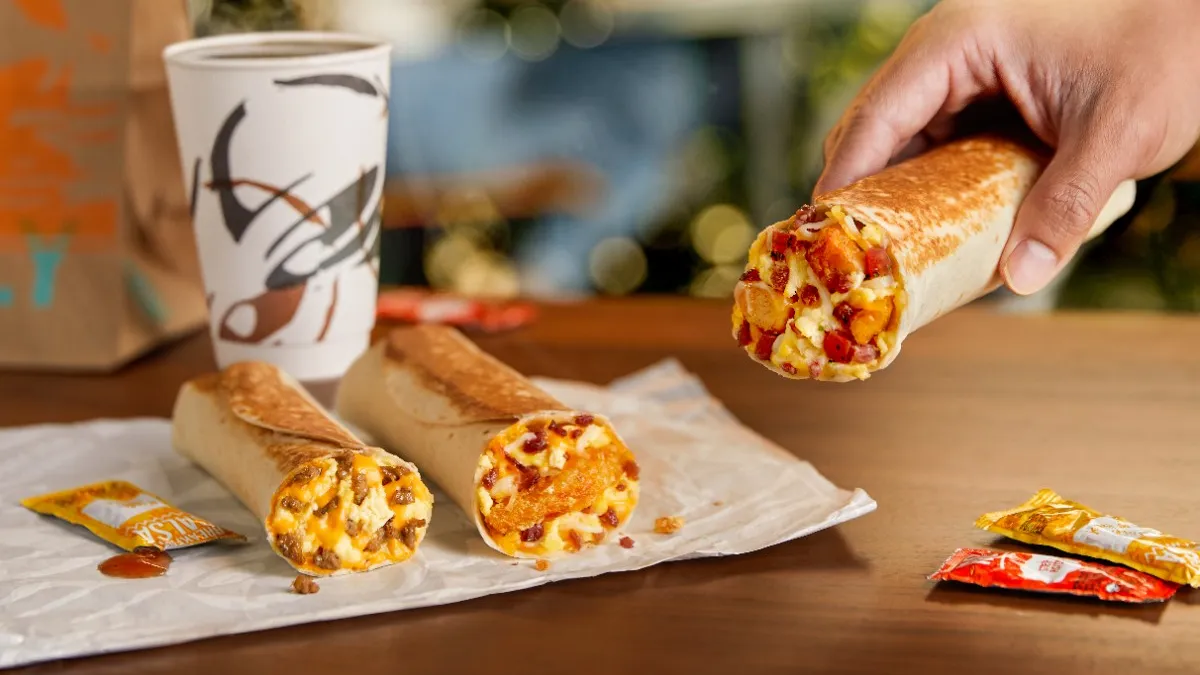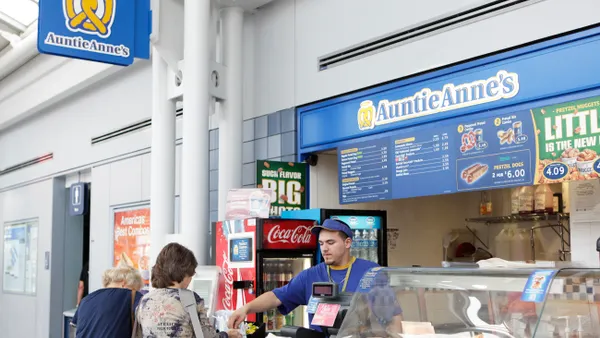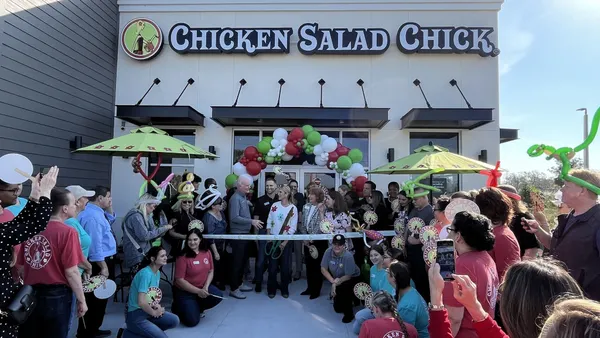Dive Brief:
- Taco Bell will let its franchisees choose not to serve breakfast starting in October, the brand confirmed in an email to Restaurant Dive.
- The brand said this change is part of a strategy to give franchisees “the flexibility to focus on key drivers of growth,” and that only a small minority of franchisees are expected to opt out of the program.
- Taco Bell remains committed to the breakfast daypart, the brand said, and all of its locations will open at 9 a.m. or earlier regardless of if they serve breakfast. It will continue to serve breakfast at all company-owned restaurants.
Dive Insight:
Breakfast sales improved throughout the second quarter, though the brand did not say how much breakfast accounted for in its overall sales mix. Executives made no mention of breakfast in Yum’s most recent earnings call. Taco Bell U.S. was Yum Brand’s standout performer last quarter, with same-store sales up 5%, while all of Yum’s other U.S. business units saw same-store sales slide.
Much of Taco Bell’s strength was attributed to its value offerings and its Cantina Chicken menu. Taco Bell said the decision to let franchisees refrain from serving breakfast would let operators focus on prime dayparts.
“Franchisees have expressed appreciation for the gesture, saying that they feel like their needs are being heard to flex their menu to better support what their community craves, while others shared that they look forward to focusing on other dayparts like lunchtime and the new Cantina Chicken Menu,” Taco Bell said in the statement.
The company said it is also “ramping up its coffee program” and testing new breakfast items.
This is the first time the chain has given its franchisees the option to cut sections of the menu, the brand said. Taco Bell first started serving breakfast in 2014, and it contributed to a long run of same-store sales growth for the brand in pre-pandemic years. In 2023, Yum expanded Taco Bell’s hours and saw growth in both the late-night and breakfast dayparts, in keeping with broader QSR efforts to use unconventional dayparts to help fortify brands against consumer pullback during core hours.














